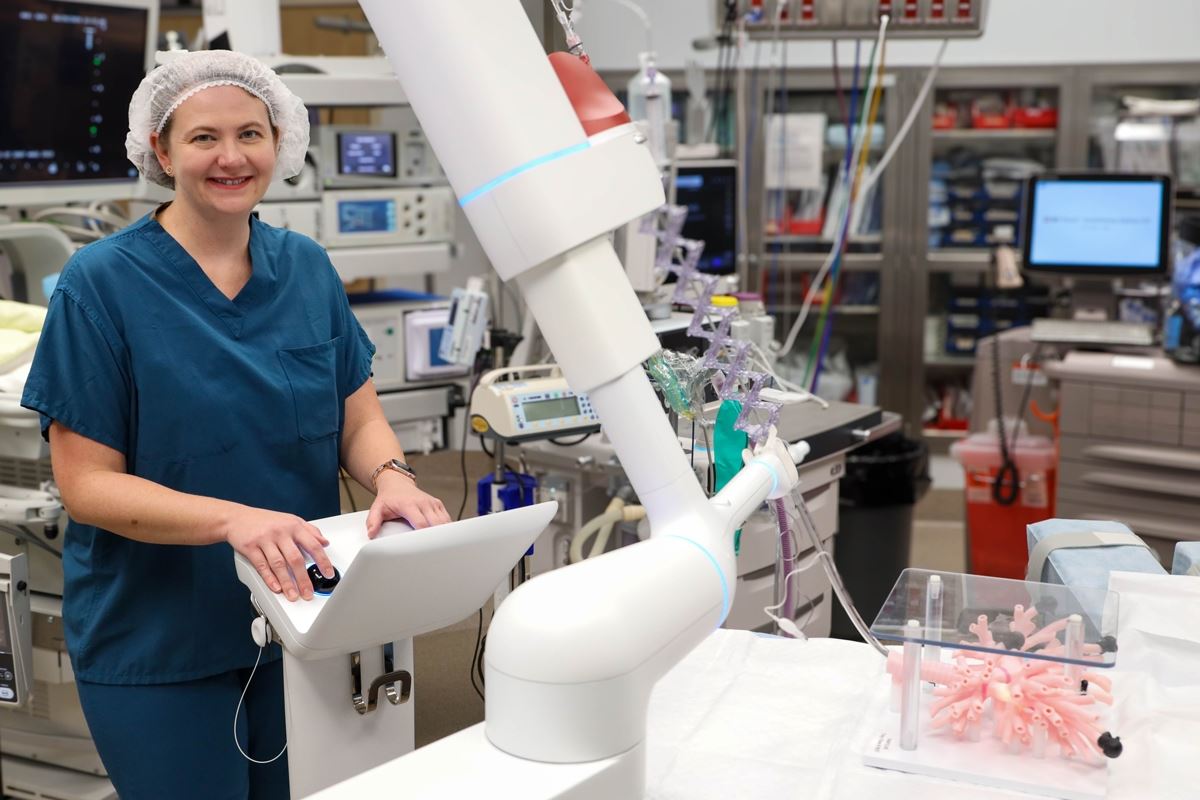
Is Your Lung Nodule Cancerous? Here’s How the Ion Endoluminal System Can Help.
If you or a loved one has been diagnosed with a suspicious lung nodule, the Ion endoluminal system by Intuitive may help determine if it is benign or cancerous with high precision.
What is the Ion Endoluminal System?
The Ion system is an advanced, shape-sensing robotic-assisted bronchoscopy platform developed by Intuitive, known for the da Vinci surgical systems. This cutting-edge technology allows the physician to biopsy challenging peripheral nodules with remarkable accuracy. With an ultra-thin, highly maneuverable catheter, Ion navigates deep into the lungs and provides stability for a precise biopsy. Key features include:
- Enhanced Reach: The ultra-thin catheter and integrated vision probe grant access to all parts of the lungs.
- High Precision: Shape-sensing technology offers detailed location data, holding the catheter steadily for exact biopsy tool placement.
- Flexible Maneuverability: The catheter’s 180° movement and flexible Flexision™ biopsy needle allow thorough biopsy capabilities.
Why Choose Ion for Your Lung Biopsy?
Traditional biopsy methods often involve using a CT scan and an external needle, which may pose risks such as lung collapse. Ion’s shape-sensing technology enhances diagnostic accuracy and can enable earlier lung cancer detection, often with only one minimally invasive procedure. Benefits include:
- A minimally invasive approach for hard-to-reach nodules
- Higher potential for early-stage cancer detection and improved outcomes
- Ability to mark nodules, facilitating quicker surgeries if needed
What to Expect During the Procedure
If robotic-assisted bronchoscopy with Ion is suitable for you, here’s an overview of the process:
- Your doctor will guide the Ion catheter through your airway to reach the target lung area.
- The flexible catheter accesses deep lung regions.
- Once at the biopsy location, the catheter locks in place, allowing precise tissue sample collection.
Consult with your physician to learn if Ion is the right option for your lung nodule biopsy and to explore this innovative, non-invasive diagnostic method.